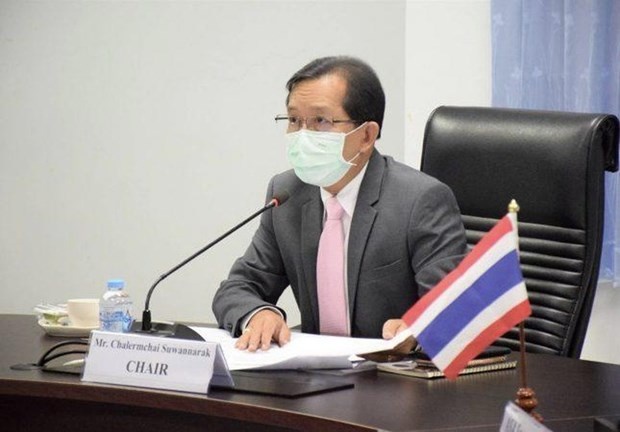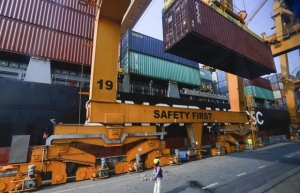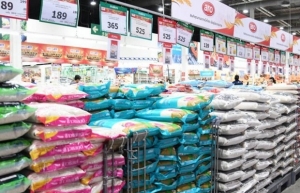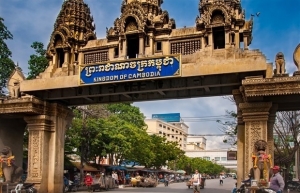Thailand to import shrimps from Ecuador, India
Bangkok – Thailand will import over 10,500 tonnes of sea shrimps this year to ease a shortage at processing plants under a decision made on August 8 at the first meeting of the shrimp board with 21 members representing the Government as well as shrimp farmers and processors.
 |
| Head of the Thai Fisheries Department Chalermchai Suwannarak (Photo: Voice-TV) |
Head of the Fisheries Department Chalermchai Suwannarak said since domestic production failed to meet demand from processors for export, the board decided to allow the import of 10,501 tonnes of shrimp from Ecuador and India this year.
About 42 tonnes of shrimp have been imported since the department approved shipments on June 10.
The board has targeted domestic production of 320,000 tonnes of white shrimp this year, rising to 400,000 tonnes next year.
This year, Thailand had produced 138,733 tonnes of shrimp up to the end of July, including 129,100 tonnes of Pacific white shrimp and 9,632 tonnes of black tiger prawns, Chalermchai said.
Thailand now has about 30,000 shrimp farms covering 96,000 ha, according to the Federation of Thai Aquaculture. However, it confirmed that production has dropped to 250,000-350,000 tonnes per year due to persistent outbreaks of early mortality syndrome (EMS).
 | Thailand: weaker baht helps exports The weaker baht is expected to boost the Thai economy and increase real GDP of the country by 0.4 percent, but not all manufacturers will reap the benefits, according to the Industry Ministry of Thailand. |
 | Thailand calls for businesses’ cooperation to stabilise product prices The Thai Commerce Ministry has called for continued cooperation from manufacturers to maintain product prices as long as possible in order to curb the negative impact on consumers. |
 | Thai electronic exports forecast to grow 4.1pc in 2022 The Siam Commercial Bank (SCB) projects exports of Thai electronic products will rise by a modest 4.1pc this year from 4.22 billion USD earned in 2021. |
 | Thai businesses eye expanding trade, investment in Cambodia Thai businesses have set their sights on expanding trade and investment in Cambodia, especially in processed food, agriculture, tourism, renewable energy, plastic, and gems and jewellery. |
What the stars mean:
★ Poor ★ ★ Promising ★★★ Good ★★★★ Very good ★★★★★ Exceptional
Related Contents
Latest News
More News
- Russian President congratulates Vietnamese Party leader during phone talks (January 25, 2026 | 09:58)
- Worldwide congratulations underscore confidence in Vietnam’s 14th Party Congress (January 23, 2026 | 09:02)
- Political parties, organisations, int’l friends send congratulations to 14th National Party Congress (January 22, 2026 | 09:33)
- 14th National Party Congress: Japanese media highlight Vietnam’s growth targets (January 21, 2026 | 09:46)
- 14th National Party Congress: Driving force for Vietnam to continue renewal, innovation, breakthroughs (January 21, 2026 | 09:42)
- Vietnam remains spiritual support for progressive forces: Colombian party leader (January 21, 2026 | 08:00)
- Int'l media provides large coverage of 14th National Party Congress's first working day (January 20, 2026 | 09:09)
- Vietnamese firms win top honours at ASEAN Digital Awards (January 16, 2026 | 16:45)
- ASEAN Digital Ministers' Meeting opens in Hanoi (January 15, 2026 | 15:33)
- ASEAN economies move up the global chip value chain (December 09, 2025 | 13:32)

 Tag:
Tag:




















 Mobile Version
Mobile Version